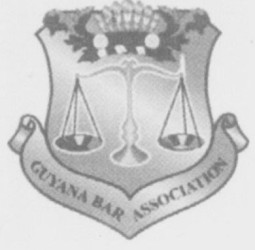A Happy New Year to the readers of the column. As the Bar Association looks towards 2016 we hope that this Column will be published with greater frequency and reliability. We do anticipate an interesting and active year and hope through this Column to share information and ideas not only with the members of the legal profession but with the public as well.
In today’s column we share the submission the Bar Association made to the Attorney General on the Anti-Terrorism and Terrorist-Related Activities Bill 2015. In fact this is one of three Bills on which the Bar Association made submissions – the other two being the Coroners (Amendment) Bill and the Law Reform Commission Bill 2015. The second reading of the last two Bills was deferred at the request of the Attorney General.
Our comments on the Terrorism Bill
 The Bill as drafted will have extra-territorial reach and make an offence committed outside of Guyana punishable in Guyana. To effect this, the Minister may address a request to a foreign State to transfer a person from that State to Guyana for the purpose of identification, testimony, or prosecution of offences under the Bill.
The Bill as drafted will have extra-territorial reach and make an offence committed outside of Guyana punishable in Guyana. To effect this, the Minister may address a request to a foreign State to transfer a person from that State to Guyana for the purpose of identification, testimony, or prosecution of offences under the Bill.
Clause 48 (2) states that the Minister shall not require the initiation of extradition proceedings for the return of the person to the foreign State.
The GBA’s submission was that extradition procedures are better dealt with in the Extradition Act than by way of a result of a terrorist offence. We also noted that there is no indication of the legal framework for the Guyana Police to investigate suspected offences committed outside of Guyana.
Part II
This part is titled Offences and includes eighteen clauses. The GBA in its submission noted that clause 3 (1) (a) requires a mandatory death penalty where the offence has resulted in the death of a person.
The view of the Bar Association is that this clause may violate the UN Convention against Torture and Other Cruel, Inhuman or Degrading Treatment or Punishment. Although it may still be considered that the death penalty is not per se a violation of international law, research suggests that international standards and practices are in fact moving in that direction.
Clauses 4 – 20 are all various forms of offences and each of them carries a minimum sentence. The Bar Association expressed in its submission its opinion that the provision of minimum sentences of ten/fifteen years violates the separation of powers principle whereby the Legislature is seeking to restrict the discretion of the High Court. The GBA pointed out in its submission that the Trinidad & Tobago Act does not contain any minimum penalty.
Part 111 which runs from clause 21 to 32 deals with offences endangering maritime navigation and terrorist bombing; those relating to radioactive material and nuclear facilities; those based on the status of the victims and offences related to civil aviation.
Clause 33 allows any police officer to apply through the Director of Public Prosecutions (DPP) ex parte to a Judge in Chambers for a detention order. Constitutional issues which arise would include:
The right to be heard;
Right to retain and instruct counsel without delay (Article 139 (3);
Right to personal liberty except on narrowly defined grounds; and
Article 187 providing for the independence of the DPP.
Clause 36 – Investigation is interesting in that it requires the Minister to have some knowledge, information and belief about the intention of the DPP while clause 37 deals with the applicability of international law in the treatment of persons against whom proceedings are taken. The Bar Association considers that it would have been useful to recognise the rights guaranteed under the Constitution of Guyana.
Clause 58 empowers the President, where he thinks it is expedient to do so, to declare any article of the UN Convention against Illicit Traffic in Narcotic Drugs and Psychotropic Substances 1988 (the Vienna Convention, the International Convention for the Suppression of the Financing of Terrorism and the International Convention against Organised Crime and the Protocols Thereto 2004 (the Palermo Convention) other than those specified under clause 58 to have the force of law in Guyana.
The Guyana Bar Association submits that this attempt by the National Assembly to delegate to the President its law making powers conferred under Article 65 of the Constitution of Guyana is ultra vires, and any such Order would be null and void.
Unfortunately none of the submissions of the Bar Association has been reflected in the Bill that was passed and which becomes law on receiving presidential assent. The Bar Association will however continue to engage the Ministry of Legal Affairs to advance its positions.









